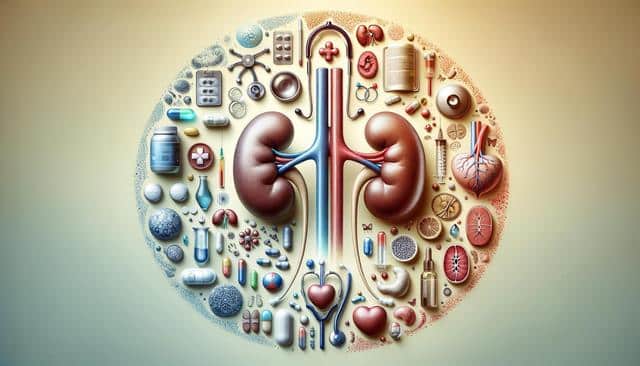Understanding Kidney Disease and Nutrition
Kidney disease affects the body’s ability to filter blood, which can lead to the accumulation of waste and excess fluids. One of the most significant aspects of managing kidney disease is through diet. Proper nutrition can help slow the progression of the disease and reduce symptoms. People with kidney disease must pay close attention to their intake of certain nutrients, such as sodium, potassium, and phosphorus, as their kidneys may struggle to balance these substances. Consulting with a healthcare professional or a dietitian is often recommended to develop a diet plan tailored to individual needs.
Foods to Include in Your Diet
For those managing kidney disease, incorporating certain foods can promote better kidney health. Here are some suggested foods to include:
- Fresh fruits like apples, berries, and grapes, which are low in potassium.
- Vegetables such as cauliflower, cabbage, and bell peppers, which are kidney-friendly options.
- Lean proteins like chicken, fish, and eggs to support overall health.
- Whole grains such as rice and pasta, which provide energy and are low in phosphorus.
These choices help maintain a balanced diet while avoiding the buildup of excessive minerals that can strain the kidneys.
Foods to Avoid
There are certain foods that individuals with kidney disease should avoid to prevent complications. It’s important to steer clear of:
- Processed foods, such as canned soups and frozen meals, which are high in sodium.
- Dairy products like cheese and milk, which contain high levels of phosphorus.
- Bananas, oranges, and avocados, as they are high in potassium.
- Whole grain breads and nuts, which are rich in phosphorus.
Minimizing these foods can help reduce the risk of worsening kidney function and other related health issues.
The Role of Hydration
Proper hydration is essential for kidney health, but it must be approached carefully in those with kidney disease. While staying hydrated is important, individuals should be mindful of their fluid intake, especially if they are on dialysis or have been advised to limit fluids by their healthcare provider. Drinking the right amount of water supports kidney function without overloading the kidneys. It is important to find the right balance, and this might require frequent consultations with a healthcare professional to adjust fluid intake as needed.
Working with Healthcare Professionals
Managing kidney disease effectively often requires a team approach. Dietitians, nutritionists, and nephrologists can provide valuable guidance tailored to the specific needs of individuals with kidney disease. They can help determine the right balance of nutrients, suggest suitable meal plans, and offer resources and support. Regular check-ups and open communication with healthcare providers can ensure that individuals with kidney disease are taking proactive steps towards managing their condition effectively.
Conclusion
For individuals with kidney disease, dietary choices play a crucial role in managing their health. By incorporating kidney-friendly foods, avoiding harmful ones, and working closely with healthcare professionals, it is possible to maintain a balanced diet that supports kidney function. Staying informed and proactive in dietary management can help slow the progression of the disease and improve quality of life.
